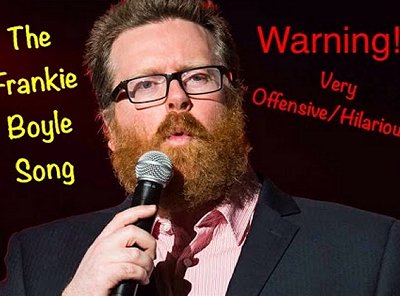
TAKING A JOKE
Are there limits beyond which humour should not go? In the absence of a consensus, the boundaries are being pushed incrementally further.
Three days after the terrorist atrocity on 9/11 someone told me a joke about the attack. I was shocked and in no mood for laughing. Few people were that week. It also caught me off-guard. Should I feign a small laugh, just to humour him? Should I tell him off, as some would? Or would that have made me look like a straight-laced vicar? It all happened so quickly – as these moments do – that I think I just looked blankly at him. It showed me that there are limits beyond which humour should not go, because you can’t make jokes about three thousand people dying. Yet the gag was cleverly formed not to create offence and thus sowed confusion in those who heard it.
It’s been said that comedy is the new rock and roll: a raft of comedians have become household names. Yet there is another sense in which this is true. In the 1960s, the rock scene was counter-cultural, unsettling the establishment and inspiring protest. It was edgy, pushing out boundaries and annoying elders. Today, comedians are working out just how far out they can edge those boundaries without being censored.
There have been several case studies for us to ponder: Ricky Gervais’ offensive assault upon the Hollywood elite at the Golden Globe awards; Jonathan Ross and Russell Brand’s crude phone message to ageing actor, Andrew Sacks; Top Gear’s lampooning of Mexicans; Frankie Boyle’s abuse of Katie Price’s disabled son. These jokes were of varying degrees of tastelessness: there is, for instance, a chasm between the wealthy power-brokers of Hollywood and a child with Down’s Syndrome. The ability of the victim to protect themselves is one mark of how far humour should go. And yet in each case there were undertones of bullying.
At its best, humour does many things. It is cathartic, releasing pent-up emotions. It humbles the high and mighty, bursting the bubbles of pomposity that some blow-up around themselves. It helps us to make connections with others: how often do we listen to Michael McIntyre makes his observations about the silly rituals of ordinary life and exclaim: ‘I do that!’ Humour also offers resistance to those who would oppress us (see: Can humour bring down regimes? in JUST SEEN) and helps us to tackle our fears. It’s been said that the Jewish race has produced more than its fair share of comedians because humour acts like a defence mechanism against those who hate you. This has ancient pedigree. There is plenty of gallows humour in the Book of Esther, some of which is poked at their enemies in ways which would be deemed offensive today.
But there is a flipside to all this: humour can bully people on the edge and vandalise the things that are really important to us. It identifies those who are different and makes fun of them while also making us more fearful by dividing us, one from another. In its relentlessness, it can lead us to believe that nothing is important in life simply because we can crack a one-liner about it. In this way it can become an addictive drug which keeps us from having to face reality.
Everyone knows there are certain boundaries that cannot be crossed (no-one would dream of making jokes about mothers who lose babies or women who are raped, for instance), but how do we police these boundaries? We should surely rely less on law than on public disapproval. There may be some things which are so sickening that to make gags about them should trigger investigation into incitement to hatred, though we should use such devices sparingly. Far better to police ourselves in deciding what is decent. Comedians, and those who broadcast them, may not like to hear complaints but they are one, much less authoritarian, way of establishing parameters. If other types of professional overstep the mark, they have to answer for it: why should comedians be exempt?
But will the boundaries be maintained? Increasingly our public life feels like a place where no-one feels they can interfere in other people’s choices, no matter how offensive they may be. This stance is often given the veneer of liberalism but it is a shallow cover for libertarianism where anyone can do what they want without regard for others.
As with many ethical questions, the golden rule which Jesus taught gives us a disarmingly simple yet profound answer: do to others as you would have them do to you. If we would not mind being on the end of the joke we are about to tell, then it is probably safe to tell it. If we would be offended we should think twice. This does not necessarily mean it is wrong to tell it. The reverse may be true: that we take ourselves far too seriously. That’s the wonderful, God-given potential of humour: it cuts us down to size while we laugh. The same size. For those who trust in God, that’s a good place to be.
POPULAR ARTICLES

Obama's Covert Wars
The use of drones is going to change warfare out of all recognition in the next decades.

Through A Glass Starkly
Images of traumatic incidents caught on mobile phone can be put to remarkable effect.

What Are British Values?
Is there a British identity and if so, what has shaped the values and institutions that form it?


